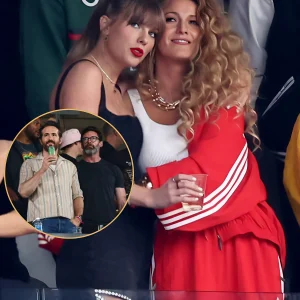For a man whose major label debut album included the songs “Just Don’t Give a F**k” and “Still Don’t Give a F**k,” Eminem has been largely defined by his own self-consciousness for the past decade of his career. Since releasing his first post-hiatus album Relapse in 2009, the bestselling rapper of all time has continually ruminated on his own legacy and struck back (sometimes preemptively) at those who criticized the more pop-friendly musical direction he adopted in the 2010s.
This unease reached its peak just as Eminem’s musical output reached its nadir on 2017’s Revival, a bloated and joyless slog of an album that far undersold its predecessors and failed to produce a Top 10 single on the Billboard Hot 100, whereas each of his previous three albums spawned at least one No. 1 hit. “Will this step just be another misstep / To tarnish whatever the legacy, love or respect I’ve garnered?” Eminem asked on Revival’s lead single, “Walk on Water.” The answer, based on the album’s savage critical reaction and lukewarm commercial performance, was a resounding “yes.” Eminem was still a highly successful legacy artist, but by the end of 2017, it seemed like his career had taken a nosedive and he was doomed to sink into irrelevance.

What a difference a year can make. After a relatively quiet first half of 2018, Eminem blasted back into the public eye with his 10th studio album, Kamikaze, which he released as a surprise on the last day of August. The tactic worked: Eminem dominated headlines in the days following Kamikaze‘s release in a way that he never did with Revival. The album debuted at No. 1 on the Billboard 200 with 434,000 album-equivalent units, a huge improvement over Revival‘s 267,000 equivalent units. Notably, Kamikaze also marked Eminem’s largest streaming week ever, generating 168,000 streaming-equivalent albums versus Revival‘s 70,000. These figures proved that in 2018, Eminem—an artist who rose to megastardom in the CD era—could still dominate streaming services and command the attention of fans and critics. This streaming momentum helped two Kamikaze tracks, “The Ringer” and “Lucky You,” debut at No. 8 and 6 on the Hot 100, respectively. In less than two months, Kamikaze went platinum and became the bestselling “pure” rap album of 2018.
Kamikaze marked a career rebound for Eminem, but it also represented a 180-degree lyrical shift from the mopey, self-serious Revival. The 46-year-old rapper treated his latest album as an extended diss against the media, his critics and other rappers, as well as a reminder of why he’s the self-proclaimed “greatest in the world.” He employed many of the vitriolic shock tactics that made his early albums so nefarious, rapping about tracking down the woman who cheated on him in “Normal” and beating up a Revival critic at his house in a spoken-word skit with his manager, Paul Rosenberg. He put mumble rappers like Lil Pump and Lil Yachty on blast on various tracks, and called Tyler, the Creator a “f****t” on “Fall,” a move that invited much criticism. On Kamikaze, Eminem returned to the unrepentant beefing and braggadocio of his youth, polarizing certain listeners but maintaining the adulation of his huge fan base.

The most lucrative example of this behavior appeared on Kamikaze track “Not Alike,” in which Eminem dissed 28-year-old Cleveland rapper Machine Gun Kelly for lewd comments he made in 2012 about Eminem’s then-underage daughter, Hailie. MGK struck back with his own diss track, titled “Rap Devil,” earning him his first solo Top 20 hit on the Hot 100. But the accomplishment paled in comparison to Eminem’s own response track, “Killshot,” which broke the 24-hour YouTube record for a hip-hop video and blasted to No. 3 on the Hot 100—higher than any track off Kamikaze. “Killshot” was a nonstop barrage of insults against MGK’s questionable talents and relative lack of chart success, including juicy lines such as, “But, Kells, the day you put out a hit’s the day Diddy admits that he put the hit out that got Pac 𝓀𝒾𝓁𝓁ed.” “Killshot” effectively ended the trashiest rap beef of 2018, but it reaffirmed Eminem’s status as a world-class battle rapper and found him operating with a confidence he seemingly lost around Revival.
Despite his recent string of chart successes, Eminem has hardly had a spotless year. Kamikaze, while a vast improvement over Revival, was still a wildly uneven affair containing awkward pop-rap bids and plenty of frustrating juvenilia. Both “Fall” and “Killshot” earned rightful criticism for their homophobic insults, which don’t exactly jive well with Eminem’s attempted rebrand as a woke Trump hater. And let’s not forget the bizarre, 10-minute “Kick Off” freestyle that he released two weeks ago, on which he reignites his decades-old feud with Christina Aguilera and makes a horrendous reference to the 2017 Manchester Arena bombing that took place during Ariana Grande’s concert. Eminem’s lack of filter has made for some groundbreaking music, but it’s also made for a lot of tasteless nonsense.





